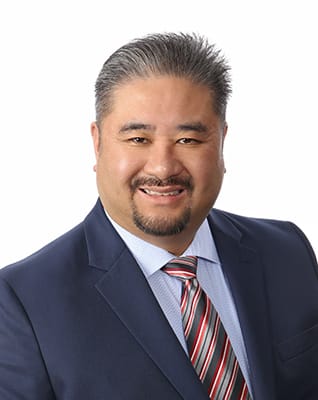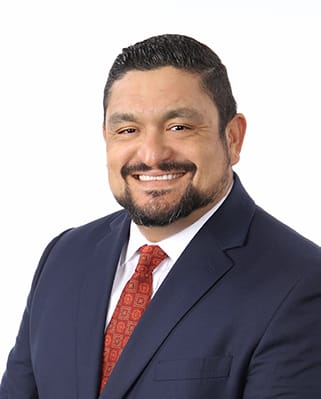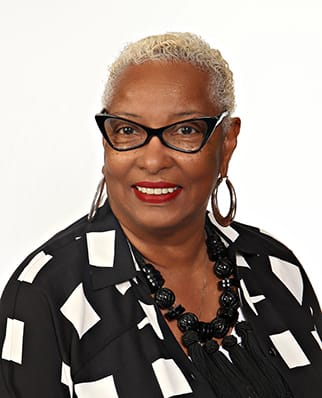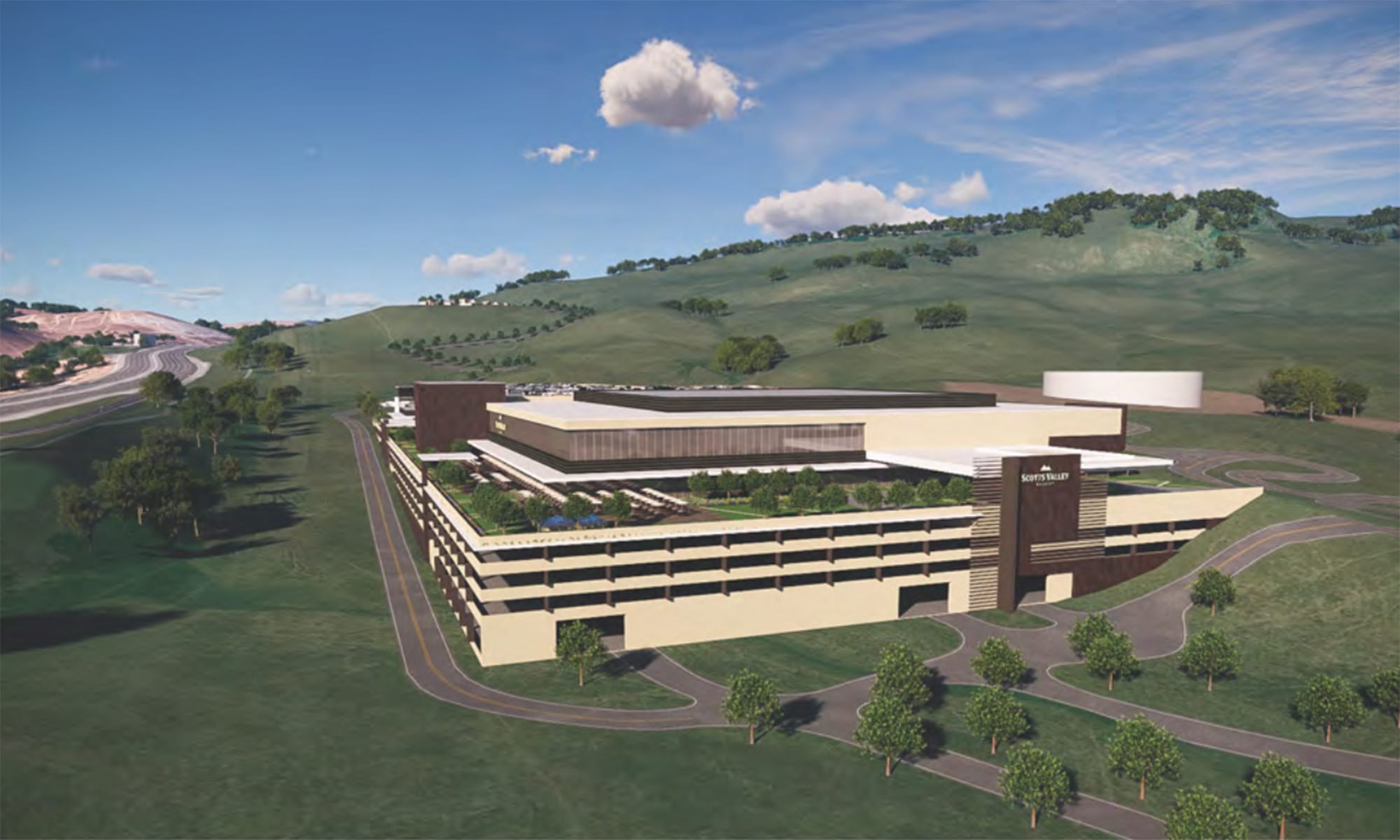VALLEJO – In recent years, elections for Vallejo City Unified School District’s Board of Education trustees have become increasingly uncompetitive. Starting in December, it’s likely that only one of the board’s five trustees will have faced an election opponent. The other four either will have run unopposed or were appointed by the board.
This year, Board President Latyna Young, who was first elected in 2020, is running unopposed, as is candidate Dean Hodges in Area 2, which represents North Vallejo. Someone could file paperwork as a write-in candidate before this year’s Oct. 22 deadline, but write-in victories, though not impossible, are extremely rare.
Trustees Glenn Amboy and Carlos Flores both took office in 2022. Amboy ran unopposed and the board appointed Flores after no one ran in Area 1, which represents downtown and Mare Island.
Trustee John Fox, who has served on the board since 2018, will likely be the only trustee who won an election. He was reelected in 2022 after beating fellow incumbent Ralph ‘Tony’ Gross and Adjit Bhandal in the Area 5 election.




As of next year, four Vallejo school board members will have either run unopposed or been appointed to the board: Glenn Amboy, Carlos Flores, Latyna Young and Dean Hodges. Photos courtesy VCUSD and Dean Hodges.
The lack of representation comes as the board is scheduled to take on important issues that could affect the district for decades to come, including deciding on possible closures and consolidations the could affect as many as eight schools.
Having a majority of the trustees not elected by voters is unique in the history of the VCUSD board. In seven elections between 2005 and 2018, no candidate took office without facing an election opponent.
That changed in 2019, when the board altered how it conducted elections. In the past, trustees were elected through an at-large system where voters throughout the city selected trustees. But since the board shifted to area-based elections where the city was carved into districts and candidates could only run in the district where they live, Vallejo’s school district elections have been much less competitive. Starting with the 2020 election, only three of a possible seven elections have been contested.
District spokesperson Celina Baguiao told the Sun that the district switched to district-based elections under legal pressure to comply with the the California Voting Rights Act, a law passed in 2002 that punishes the use of at-large elections and allows plaintiffs to sue local entities whose use of at-large elections may hinder the voting power of minorities.
“The district preemptively shifted to trustee-area elections for future governing board elections because private law firms targeted numerous school districts and public agencies across the state for alleged CVRA violations,” Baguiao said. “Believing it was the best course of action, the district transitioned to trustee-area elections.”
Malibu attorney threatens city of Vallejo
On Sept 14, 2018, Malibu-based attorney Kevin Shenkman sent a letter to the city of Vallejo that threatened legal action on behalf of Southwest Voter Registration Education, a nonprofit that seeks to increase Latino participation in elections.
At the time, the City Council consisted of four Filipino and three white council members, and the letter suggested the system had excluded Latino and Black participation, which collectively make up about 45% of Vallejo’s population. The city soon switched to a district-based system, and paid Shenkman and his firm $30,000.
VCUSD switched to district based elections not long after the city received its letter from Shenkman.
Baguiao said that the district has benefitted from the change because it allows for more diverse representation on the board.
“The district believes the new trustee-area-based system has been a positive change, helping to ensure better representation of all communities within the district,” Baguiao wrote in an email. “By focusing on specific areas, we have a greater representation of our demographic groups representing our student body.”
Based on a review of past trustees, it appears proportionately more Black and Latino board members have taken office since the switch. Between 2005 and 2018, 19 trustee seats were filled. Black board members appear to have served on the board three times while no Latino members appear to have served. Since the 2020 elections, seven seats were filled. Black trustees served in three of them and one Latino trustee has taken office.
Shenkman told the Sun in an interview that he “doesn’t really remember a whole lot about Vallejo specifically,” but that, in general, he favors area-based elections because he thinks it’s a more equitable system.
“I don’t think there are much or any legitimate advantages to at-large elections,” Shenkman said. “One might say it allows the political establishment to maintain its power, but I don’t think that’s a worthwhile goal.”
Shenkman said he thinks area-based elections make it easier for those without access to a lot of money to run. Mailers, radio and TV are most effective in elections with a lot of voters, but they’re expensive. When the electorate is small, door knocking can be effective, and campaigns can be run “for damn near nothing.”
“I think that’s a large part of the reason why more candidates run in area-based elections generally,” said Shenkman, “especially among minority populations that haven’t been historically successful and have been underrepresented. But that’s not to say that that always happens.”
But Douglas Johnson of the National Demographics Corporation – a non-partisan consulting firm that works with school districts, cities, counties, and states to guide election policy and districting – said that area-based elections can pose problems, and what’s happening in Vallejo’s elections is not uncommon. (The National Demographics Corporation helped the city of Vallejo redraw its district boundaries in 2022.)
“It is a big concern that there are fewer competitive elections,” Johnson told the Sun. “That is one of the downsides to district based elections."
In addition to having a smaller pool of possible candidates, Johnson said area-based elections can deter new people from running against an incumbent because, structurally, it can force candidates to run negative campaigns. In area-based school board races where an incumbent runs, a non-incumbent has to defeat the incumbent to claim their seat. In an at-large system, voters can generally elect multiple candidates who run for multiple seats, and often can vote for both an incumbent and a non-incumbent.
Ultimately Johnson feels both at-large and area-based systems have their pros and cons.
“Neither is better,” Johnson said. “At-large is better for some situations and area-based is better for others.”
More and more jurisdictions have been switching to district-based elections though. Johnson said that since 2006, when the California Voting Rights Act fully took effect, the number of cities, counties, school and water boards in California that use area-based elections has gone from 29 to more than 640 entities.
According to Johnson, legal pressure is often what guides the switch. He told the Sun that four lawyers and their firms, including Shenkman, have been sending letters out, often but not always on behalf of an advocacy group like the NAACP or the ACLU, that accuse the entity’s at-large system of limiting the voting power of a minority group.
The letters threaten legal action if they don’t switch to an area-based system. When entities change their voting systems, as they almost always do, the entities end up paying the law firm that sent the letter a fee as required under state law. Many cities never even receive a letter, but change due to fear of receiving one and having to pay a fee, especially when a nearby entity receives a letter.
“What we see all the time is one letter will come into a city and then they’ll just send a follow-up letter to every overlapping jurisdiction,” Johnson said, “The school district, the water district, the sanitary district, the park and recreation district will all get letters shortly after the city does.”
“For most jurisdictions,” Johnson said, “the financial risks of not switching far outweigh any policy decisions.”
Agencies across California have switched electoral systems, with mixed results
Of the four lawyers, Johnson said Shenkman is by far the most prolific. According to an extensive report on Shenkman’s work published last year by the San Francisco Chronicle, Shenkman and his colleagues have made more than $15 million from CVRA lawsuits and settlements. Shenkman told the Sun that he and his colleagues have sent out between 100 and 200 letters, and completed five trials — all of which they’ve won.
They won a $4.6 million settlement from one trial alone, according to the Chronicle report, when the city of Palmdale, which was controlled by white Republicans even though its population was majority Black and Latino, refused to switch and took the matter to trial in 2012.
Studies of whether switching from at-large to district based elections helps create more representation for minorities has been mixed.The Chronicle examined 45 boards that switched under legal pressure, including city councils, school boards and other local agencies serving an average population of around 100,000. They found 22 councils and boards became more diverse, and 23 did not. Of these 23 councils are boards, 16 saw no change, and seven became whiter.
A 2019 study of California city councils that switched from at-large to district-based elections published in Urban Affairs Review found that “in general, minorities gain seats when cities switch.” According to the study, minorities gain 10-12% more council seats, and Latinos specifically gain about 20% more seats.
The Vallejo City Council’s switch has had mixed results so far. Vallejo elected one Filipino and one Latino board member in 2020. Latino councilmembers have been extremely rare in Vallejo since at least the 1960s. In 2022, one white, and two Filipino councilmembers won. None received more than 37% of the vote. Six Black candidates ran unsuccessfully in two of these races, causing some to consider that they might have split votes among each other.
Shenkman said his law firm has, at times, recommended using a ranked-choice voting system, where voters rank candidates in order of preference, in conjunction with area-based elections at times. Although a staunch advocate of area-based voting “in the vast majority of situations,” Shenkman also said that he “wouldn’t foreclose the possibility that there are places or possibilities that an at-large system might be better.” According to Shenkman, deciding how elections should be conducted in the fairest way is “more of an art than a science.”
Johnson told the Sun that even if entities feel they have a solid case against switching from at-large to area-based elections, they almost always switch anyway, because not switching would mean getting sued, and would cost millions in legal fees even if they win.
Johnson said he thinks that the CVRA inappropriately caused a “one-sized-fits all model” to be imposed on entities in California and the switch in voting systems isn’t always good. According to Johnson, tiny school districts like Elizabeth Lake Hughs Elementary school district, which serves a population about about 800 people and switched to area-based elections under legal pressure, struggle more to fill seats in their governing boards, and switching just makes filling them harder.
Johnson said he thinks the CVRA has “admirable intentions” but law firms’ desire for a profit causes entities to switch when it’s not helpful.
“We haven’t figured out how to reign in the abuse of the CVRA without keeping the positive side of it,” Johnson said.
It might be too early to tell, long term, what the effects of VCUSD switching to area-based elections will be. Regardless, Baguaio, the Vallejo school district spokesperson, told the Sun the district won’t be switching back.
“There is no consideration of switching back to the at-large system,” Baguaio said, “as the area-based approach promotes more equitable and responsive governance.”
According to Johnson, there are legal reasons why entities across the state won’t switch back.
“Whoever is the first entity to try to switch back will almost certainly get sued as a test case,” he said.
Johnson said that he and others with the National Demographic Corporation have been in many closed sessions with councils and boards where the idea of switching back to an at-large voting system has been proposed, but none of them have seriously considered it.
“There are lots of jurisdictions that have expressed an interest in switching back,” Johnson said, “but once the lawyers brief them on the likely costs, they switch to other issues.”
Editor's note: This story has been updated to correct the date that John Fox took office.
Before you go...
It’s expensive to produce the kind of high-quality journalism we do at the Vallejo Sun. And we rely on reader support so we can keep publishing.
If you enjoy our regular beat reporting, in-depth investigations, and deep-dive podcast episodes, chip in so we can keep doing this work and bringing you the journalism you rely on.
Click here to become a sustaining member of our newsroom.
THE VALLEJO SUN NEWSLETTER
Investigative reporting, regular updates, events and more
- education
- Vallejo City Unified School District
- Vallejo
- Latyna Young
- Dean Hodges
- Glenn Amboy
- Carlos Flores
- John Fox
- Celina Baguiao
- California Voting Rights Act
- Kevin Shenkman
- Douglas Johnson
- National Demographics Corporation

Zack Haber
Zack Haber is an Oakland journalist and poet who covers labor, housing, schools, arts and more. They have written for the Oakland Post, Oaklandside and the Appeal.
follow me :




